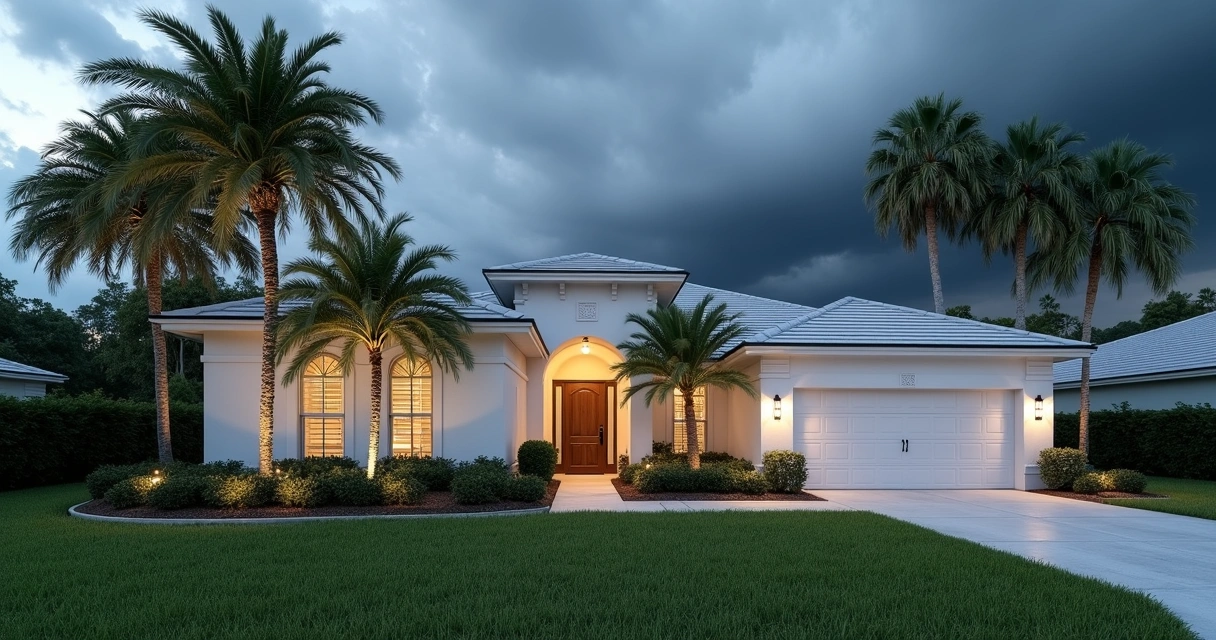Finding a lender for your new home in Florida can sometimes feel like you’re assembling a puzzle you’ve never seen the picture for. You hear stories: relatives thrilled with their locked-in rates, a friend lost for months in paperwork, another marveling at how quickly their process wrapped. With so many choices in 2025, what really separates the good from the not-so-good when you look for the people and institutions to trust with your dream of homeownership?
This guide will walk you through the essentials, highlight details for first-time buyers, weigh pros and cons, and point to resources like Heart Mortgage—a company known for putting clarity and customer needs at the center of every step. Let’s look closer at the world of borrowing in Florida, how to avoid missteps, and how to find the support that fits.
Why finding the right lender matters
Each buyer is unique. Whether you’ve just started mapping neighborhoods on your phone or you’re refining a short list after years of saving, your lender shapes the experience in visible—and subtle—ways:
- They decide which loan programs you can use
- They set the tone for customer service and responsiveness
- They impact your monthly payment, fees, and even closing day surprises
Your lender isn’t just a source of cash. It’s sometimes your guide, your negotiator, and your advocate.
Getting it right can save thousands, reduce headaches, and make the process much less stressful. But it can also open doors that seemed impossible—from grants for first-time homeowners to second-chance financing for those previously denied.
Types of mortgage lenders in Florida
Not every lender operates the same, and understanding the lay of the land helps you choose based on your needs, not just flashy ads or vague promises. Here’s how the choices typically break down:
- Direct lenders: These include banks, credit unions, and institutions you probably recognize. Many offer standardized processes and a range of loan options.
- Mortgage brokers: Rather than funding loans themselves, brokers connect you with a network of lenders, sifting through choices to find something tailored.
- Non-bank lenders: Increasingly common, these specialize in mortgages (sometimes exclusively online), offering a mix of tech and human touch.
Each comes with strengths and shortcomings. Large institutions might offer stability and broad reach, but can be rigid.
On the other hand, some brokers and independent specialists are nimble, willing to examine your story if you’ve faced credit hurdles, irregular income, or unique properties—fitting for buyers looking beyond the standard template. Heart Mortgage, for example, builds its services for exactly these moments, giving reassurance when the journey gets a little complicated.
Comparing the experience: pros and cons
If only every decision was black and white. The truth is, what feels like an advantage to one buyer could be annoying to another. To help sort your options, here’s a quick rundown:
- Banks and credit unions
- Pro: Familiarity, proven history, sometimes special programs for members
- Con: More documentation, longer timelines, less flexibility with unique credit or income situations
- Mortgage brokers
- Pro: Wide access to lenders, potentially better match for challenging credit or self-employment income
- Con: May involve extra fees, and your experience can be very dependent on your broker’s skill and connections
- Non-bank/online lenders
- Pro: Fast online tools, easy pre-qualification, sometimes friendlier to alternative documentation
- Con: Less personal interaction, tricky if your situation gets complex or needs in-person guidance
Sometimes, what matters most is your comfort. Do you like in-person meetings, or does digital paperwork suit you? Would you sacrifice a slightly lower interest rate for real human conversations in your native language? Customer reviews can help, but so can your own intuition.

Understanding the homebuying process for first-timers
Nothing quite compares to the flood of emotion when you consider buying your first home. Florida draws buyers with sun, fun, and investment opportunities, but the learning curve can feel steep.
If you’re a first-time homebuyer, you’ll find that programs dedicated to people in your situation can be a lifeline. According to Forbes' insights into loan programs for first-time homebuyers in Florida, options include FHA loans, local grants, down payment assistance, and special products with reduced rates or relaxed requirements. Some only need a 3.5% down payment and allow lower credit scores—though the trade-off can be slightly higher rates or mortgage insurance.
It often looks like this:
- You make the decision to buy and see how much home you can afford (helpful calculators are available, like the Heart Mortgage mortgage calculator).
- You get pre-qualified or pre-approved, so sellers know you’re a serious contender.
- You choose a lender and loan program that fits your situation.
- You find your home, make an offer, and negotiate terms.
- The lender completes an appraisal and underwriting, checking property value and your finances.
- Once approved, you close on the loan—signing final documents and getting your keys.
Sounds easy on paper, but each step can have twists. For instance, picking a program that requires less money down seems great—until you see the added cost of private mortgage insurance or stricter property conditions. This is especially true in high-demand areas or for buyers with lower credit scores.
Don’t be afraid to ask questions—your first time is the best time to learn.
Loan programs for Florida homebuyers
Choosing your loan type isn’t just about the lowest interest rate. In Florida, several programs might suit your situation depending on your income, employment, credit, and desired location. Resources like the loan programs page from Heart Mortgage and Bankrate’s breakdown of Florida mortgages offer more details, but here’s a quick overview:
- Conventional loans: These work best for those with solid credit (usually 620 or higher) and enough saved for a 5% to 20% down payment. Find more at the conventional loan page.
- FHA loans: Favorable for first-timers or buyers rebuilding credit; down payments can be as low as 3.5%, but buyers must pay mortgage insurance.
- VA loans: For veterans and active-duty military, one of the rare chances to buy with 0% down (though paying other closing costs is expected).
- USDA loans: For buyers in certain rural areas, sometimes also featuring a zero down payment option with income limits.
- State and local assistance programs: Grants or second loans for down payment or closing costs, sometimes forgivable after a set number of years in the home.
Some cities and counties sweeten the deal for teachers, first responders, or local employees, though the criteria can change year by year based on funding. Even if you think you won’t qualify, it’s always worth a quick review.
Interest rates across lenders in 2025
Interest rates are the variable that can have the biggest effect on your payment over time, and 2025 has seen some stabilization after a few wild years. According to a recent article on Florida real estate market conditions, average 30-year fixed rates in Florida are hovering near 6%, with occasional dips as lenders compete. While this is higher than a few years ago, it’s much lower than peaks seen decades ago.
But here’s a detail too many gloss over: advertised rates might not be what you get. The actual offer depends on your credit score, income, down payment, property type, and even the location. For buyers with credit challenges or small down payments, rates may jump considerably—sometimes making a difference of hundreds of dollars per month.
Comparing rates is wise, but compare lender fees too—sometimes low advertised rates come with high origination or processing costs.

The role of credit requirements
Credit score is a gatekeeper in the mortgage world. Many lenders in Florida look for a minimum of 620, but with FHA loans or special programs, buyers can sometimes qualify with scores in the high 500s. Loan programs and their required scores can vary by county, as detailed in Forbes’ coverage of Florida loan programs and confirmed by data on specific lender requirements.
But here’s the catch: lower scores usually mean higher rates, more scrutiny of debts, or even the need for co-signers or larger reserves. Additionally, if you’re carrying significant debt, your debt-to-income ratio comes under close review.
That’s where a specialist—someone like one from Heart Mortgage’s team—really shines. They can explain what’s possible and how to improve approval odds, something vital if you’re close to program thresholds.
Down payment: how much you really need
One of the biggest misconceptions is that you need to save 20% for a home in Florida. While that was once standard, now options for as little as 3% down exist, and special programs (especially for veterans or rural buyers) sometimes need nothing upfront. According to recent lender breakdowns, the most common minimum is around 3% to 5% for those who qualify.
However, the less you put down, the more you’ll usually owe each month, mainly due to mortgage insurance. At the same time, putting down more can sometimes open the door to lower rates and reduce or remove insurance requirements. It's a trade-off.
Down payment size shapes not just your payment, but the programs and fees you qualify for.
Be sure to estimate how your chosen amount affects your monthly spend. Tools such as a mortgage calculator can show what even small adjustments mean for your payment, insurance, and the long-term cost.
Flood zones, insurance, and Florida’s regional quirks
When buying property in Florida, few factors matter as much as a home’s location in or near a flood zone. Flood maps can shift, and being designated in a high-risk zone means special requirements for flood insurance—which in Florida, isn’t just a formality, but a substantial part of overall cost.
According to reports about flood risk and insurance costs in Miami, insurance now often takes up about 19% of the monthly mortgage payment—much higher than the national average. And it’s not just coastal areas affected. Inland buyers can face surprise costs, so reviewing local FEMA maps and understanding policy limitations is wise before making an offer.
- Check if a property is in a designated flood zone (maps are available on local county or FEMA websites).
- Review the age and construction of the home; older homes may need upgrades or come with higher premiums.
- Talk to your lender about required and recommended insurance types. Sometimes, specific coverage is non-negotiable to secure your loan.
Flood risk isn’t just a map issue—it’s a financial one.
Don’t forget about hurricane requirements and windstorm policies either. Even if you’ve lived in Florida your whole life, as a buyer, you’ll see these complex issues in a fresh—and costly—way.
What happens after mortgage approval?
After your mortgage is approved, the finish line is in view—but a few hurdles remain. The lender will order an appraisal to be sure the property value justifies the loan you’re requesting. Inspections may reveal issues that need to be fixed before you close. You’ll also review final documents (called “closing disclosure”) listing what you owe and what you need to bring to the table.
Here's what to watch for next:
- Insurance arrangements: You’ll need proof to close on your home.
- Down payment funds: Make sure your money is traceable and available; large deposits can sometimes trigger additional review.
- State and local aid: Check whether you qualify for final-hour programs—sometimes new assistance pops up before closing, especially for first-timers.
- Review documents with care: Don’t hesitate to ask your lender or loan officer for clarification.

If you feel rushed in the final days, pause and breathe. It’s okay to ask for more time, especially with large investments at stake. Good lenders—think Heart Mortgage and others who value trust—will understand that this decision isn’t just business, it’s about your future.
Tips for informed borrowing in 2025
- Check for updated credit or down payment requirements. Lending rules can shift mid-year, making yesterday’s advice outdated.
- Gather documents early—W-2s, pay stubs, tax returns, ID. Even in a digital age, paperwork rules the world of home lending.
- Have honest conversations about your goals, especially if you’re not sure you want to stay in the home long-term—a shorter term loan or adjustable-rate mortgage might save you money, or it might not.
- Review state-specific resources, like the Florida Housing website or local city assistance offices. Sometimes a single call can connect you with thousands in grants or credits.
- Ask about all costs, not just rates: origination fees, application fees, appraisal, insurance, title costs, and future property taxes.

When to reach out
The ideal time to reach out to a lender is before you start house hunting. Why? Because a pre-approval gives you solid ground as you search, and you’ll know your true budget early.
Projects like Heart Mortgage specialize in guidance that goes beyond the forms and signatures. Their focus on transparency gives buyers—especially those with unique stories, language needs, or bumpy credit—a sense of control. If you appreciate clear explanation, real conversations, and highly tailored service, getting to know them could make all the difference.
Conclusion: your path to homeownership in Florida
Borrowing for a home in Florida in 2025 is rarely just about the numbers. Whether you’re a first-time buyer in Miami, a growing family in Tampa, or an investor in Orlando, your journey will have its questions, surprises, and even a few celebrations along the way.
The secret? Choose people and programs that feel like a fit—not just on paper, but in the way you’re treated. A great lender will shape your experience, shield you from unnecessary stress, and open new options you may not have known about. Heart Mortgage and similar projects go further, focusing on clarity and your long-term happiness, not just a fast sale.
Take your time. Ask your questions. And let your next step be the one that brings you a little closer to home.
Ready to start, or just want to ask a few questions? Reach out to Heart Mortgage and discover the kind of support, honesty, and expertise that can turn dreams into addresses.
Frequently Asked Questions
What are the top-rated mortgage lenders in Florida?
Top-rated lenders in Florida typically include a mix of traditional banks, local credit unions, and specialists that focus on personal service or unique borrower needs. The best fit depends on your profile, desired loan type, and your need for flexibility versus convenience. There’s no single winner—an independent rating of various mortgage companies serving Florida outlines strengths in different areas, like low down payment programs or streamlined digital processes. For buyers who value clear communication and customized attention, some projects such as Heart Mortgage have consistently high satisfaction among clients thanks to their tailored support and honest guidance.
How do I choose a Florida mortgage lender?
Choosing a lender goes beyond just a low interest rate. Start by deciding how much service you want—do you prefer digital tools or in-person attention? Review online ratings, but also ask friends or real estate pros for experiences. Compare offers and ask questions about credit requirements, down payment minimums, fees, and the types of programs available to you. A clear FAQ section is often a mark of a transparent lender. Don’t be shy about wanting someone who will explain every detail, or about choosing based on the comfort you feel with a loan officer, since you’ll be trusting them with sensitive information (and your financial future).
What makes a mortgage lender the best?
The idea of the “best” lender is personal. For some, it’s about the fastest closing or the lowest upfront cost. For others, it’s the feeling of being heard, having someone walk them through Florida-specific details like flood zones, or the certainty of having support when questions pop up later. Many buyers consider those who combine competitive terms with a focus on honesty and accountability—values you’ll find with projects like Heart Mortgage. Flexibility, responsiveness, and proactive help with documents or issues often tip the scale for buyers navigating their first purchase or complex financial situations.
Where can I compare Florida mortgage rates?
You can compare rates using both national and local resources. Websites that specialize in financial rates, like Bankrate’s Florida mortgage rates comparison tool, are helpful. However, advertised rates can be different from personalized offers. Checking with specific lenders or using a funding-focused calculator, such as the one provided by Heart Mortgage, will let you estimate your own possible rate based on credit, income, and down payment.
How much do closing costs average in Florida?
Typically, closing costs in Florida range from 2% to 5% of the home’s purchase price, covering things such as appraisal, title insurance, lender fees, and sometimes state taxes. For a $400,000 home, you might pay between $8,000 and $20,000—though assistance programs sometimes offset a portion for first-timers or specific groups. Costs can vary by county and even by lender, so request a detailed breakdown upfront before you commit. If you need help understanding or budgeting for these numbers, a knowledgeable loan officer or project geared to transparency, such as Heart Mortgage, can provide itemized estimates tailored to your situation.





